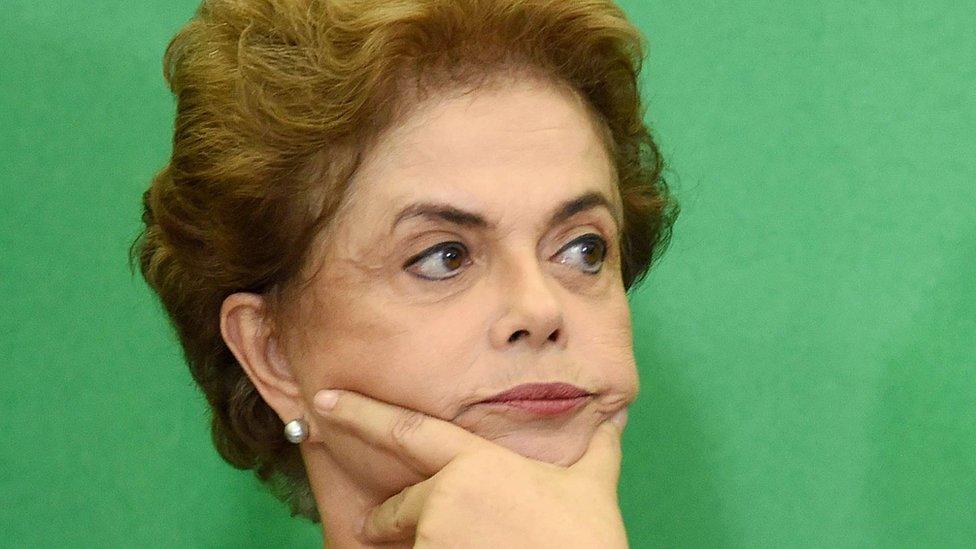Brazil crisis: A timeline
- Published
Dilma Rousseff has been suspended from Brazil's presidency after senators voted to launch an impeachment trial against her. The president faces allegations of violating fiscal rules, which she says is a common practice in Brazil. She will remain suspended for up to 180 days while the trial lasts.
Ms Rousseff says efforts to impeach her amount to "a coup attempt". But recent opinion polls suggest most Brazilians support her removal. Here we take a look at the major recent developments in a political crisis that has engulfed Latin America's powerhouse.

4 March: Lula questioned by police
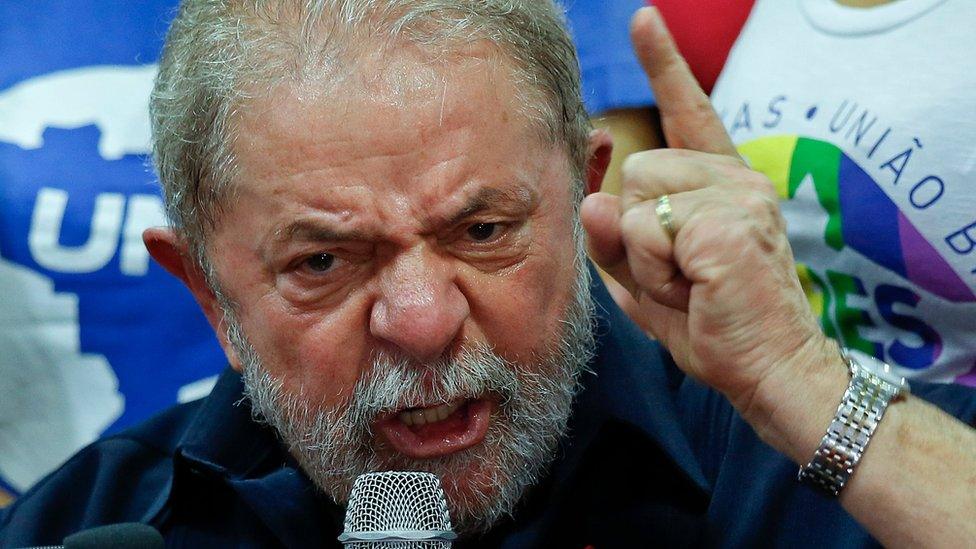
Former President Luiz Inacio Lula da Silva, Ms Rousseff's political mentor, is questioned by police and his house raided as part of Operation Car Wash into corruption at the state-owned oil company, Petrobras. Investigators believe he benefited from construction companies targeted by the inquiry. He denies wrongdoings and says the "violence" against him is "arbitrary, illegal and unjustifiable". Protesters supporting and demonstrating against him are held in many cities.

13 March: Large anti-government protests
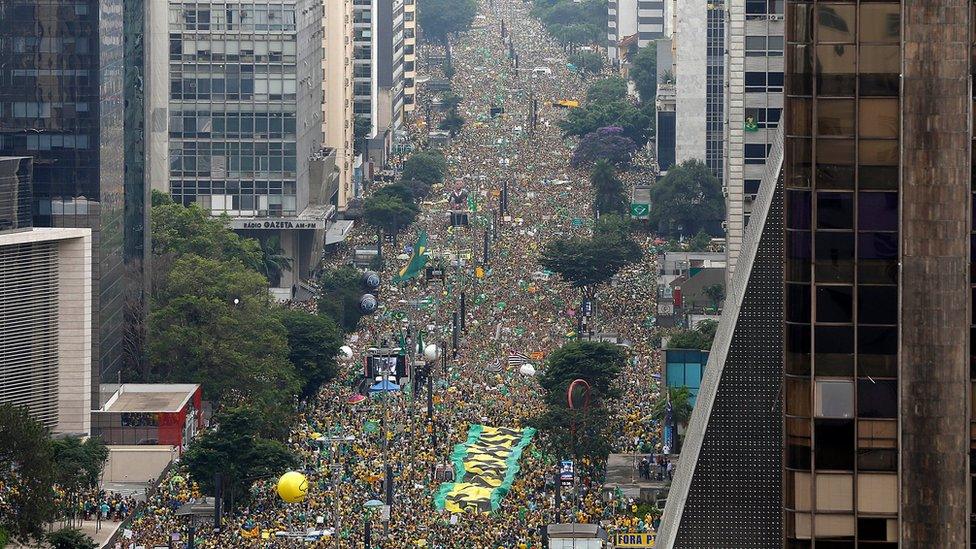
Huge crowds take to the streets of dozens of Brazilian cities calling for President Rousseff's removal. In Sao Paulo, an estimated 1.4 million people march through the iconic Paulista Avenue, chanting slogans mainly against Ms Rousseff, Lula and their Workers' Party. They say they are fed up with corruption and with the state of the economy. Smaller demonstrations in favour of the president are also held.

16 March: Protests as Lula is appointed chief of staff
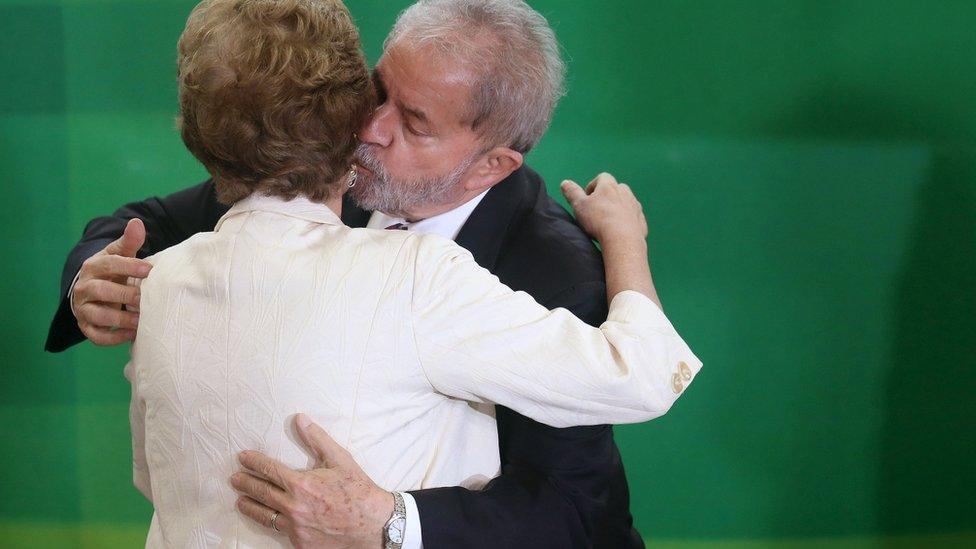
President Rousseff names Lula as her chief of staff, sparking protests in several cities. Hours later, Sergio Moro, the judge overseeing Operation Car Wash, releases phone recordings suggesting Ms Rousseff appointed Lula to spare him arrest. The president defends her decision, saying this is not the motivation for the appointment. A Supreme Court judge later suspends the nomination.

18 March: Rousseff and Lula supporters take to the streets
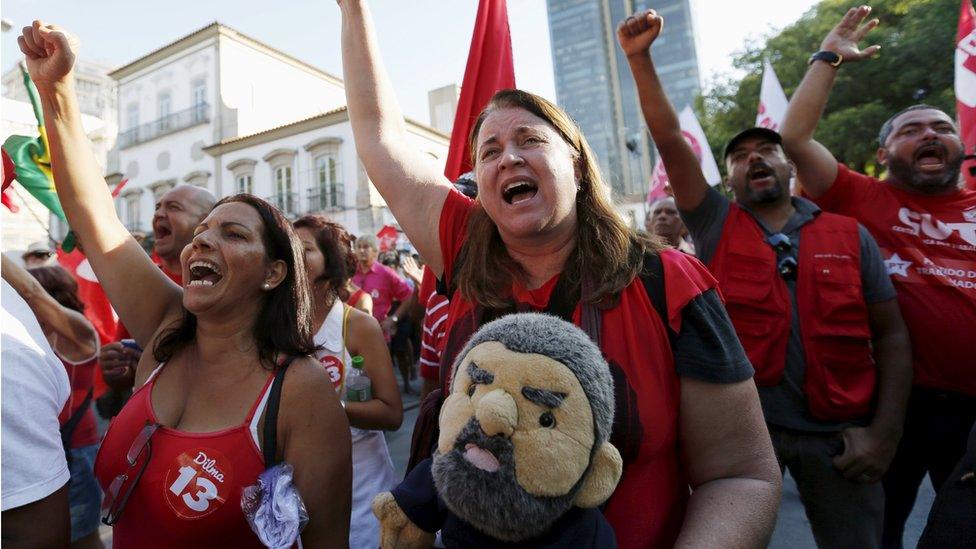
Tens of thousands of protesters show support to President Rousseff and Lula. Organisers say about 300,000 people demonstrated there, but a respected pollster puts that number at 95,000. The ex-president addresses a crowd at Paulista Avenue and says "there will not be a coup".

29 March: Key coalition party leaves government
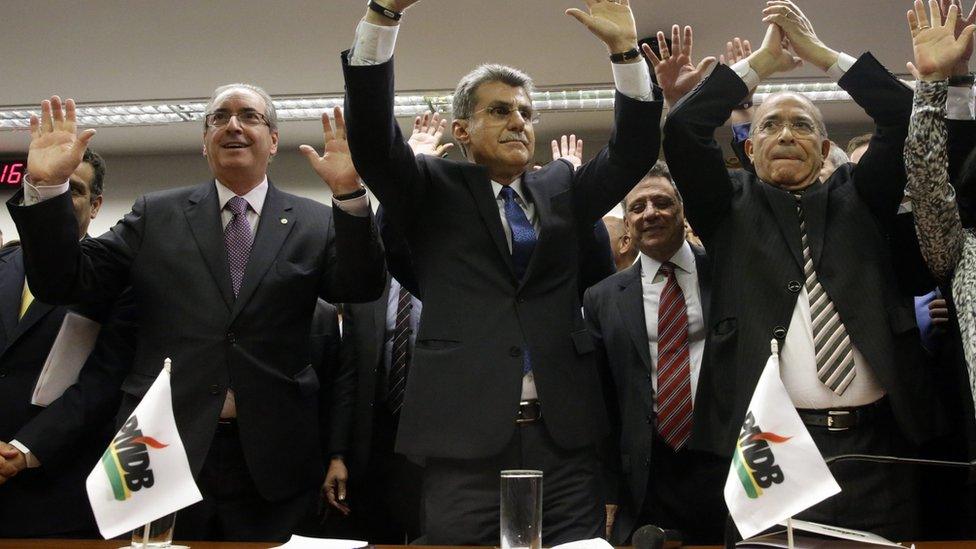
PMDB, the largest party in Brazil's ruling coalition, votes to leave Ms Rousseff's government. This is the party of Vice President Michel Temer and Eduardo Cunha, then Speaker of the Lower House, who has led the impeachment drive.

11 April: Temer in controversial audio message
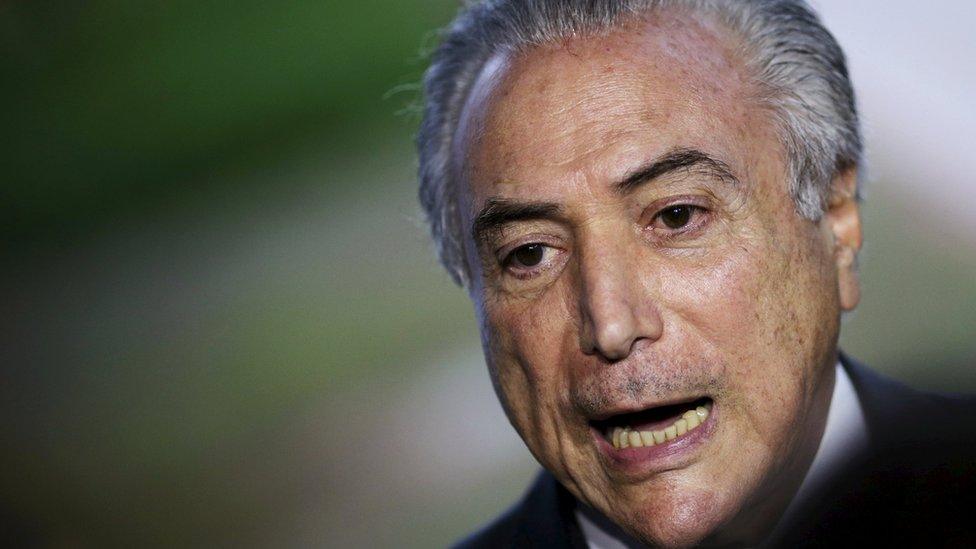
A 15-minute audio recording in which Mr Temer appears to be rehearsing a speech to his party is released. In it, Mr Temer speaks as if the impeachment process against Ms Rousseff has been approved. His cabinet says the message has been released by mistake. Ms Rousseff says it is proof of his "coup" plot. She has accused him and Mr Cunha of being "ringleaders of the coup".

17 April: Lower house approves start of impeachment process
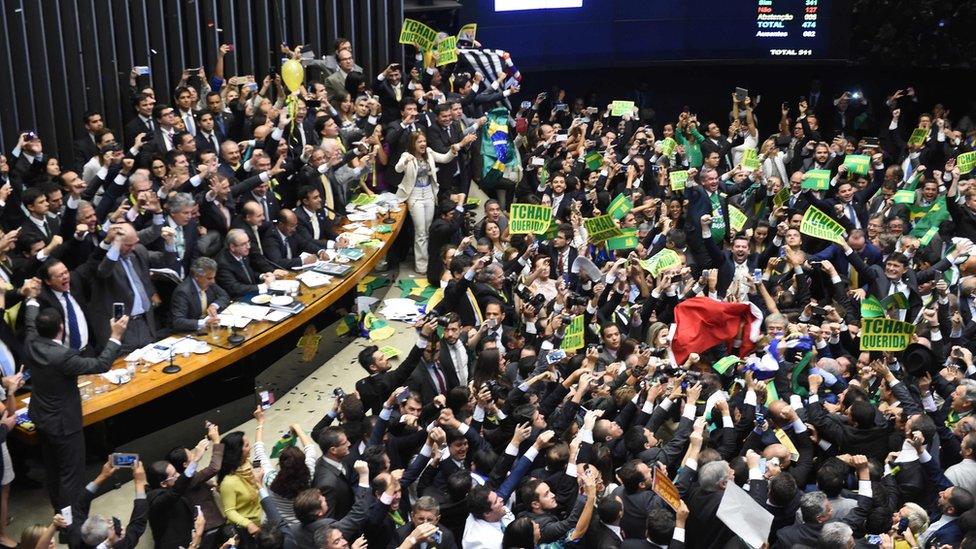
Lower house of Congress overwhelmingly votes to start impeachment proceedings against Ms Rousseff amid scenes of chaos in the chamber. The vote is broadcast live on Brazilian television and loud victory celebrations are held in cities across the country. Process moves on to the Senate.

18 April: Rousseff 'outraged'
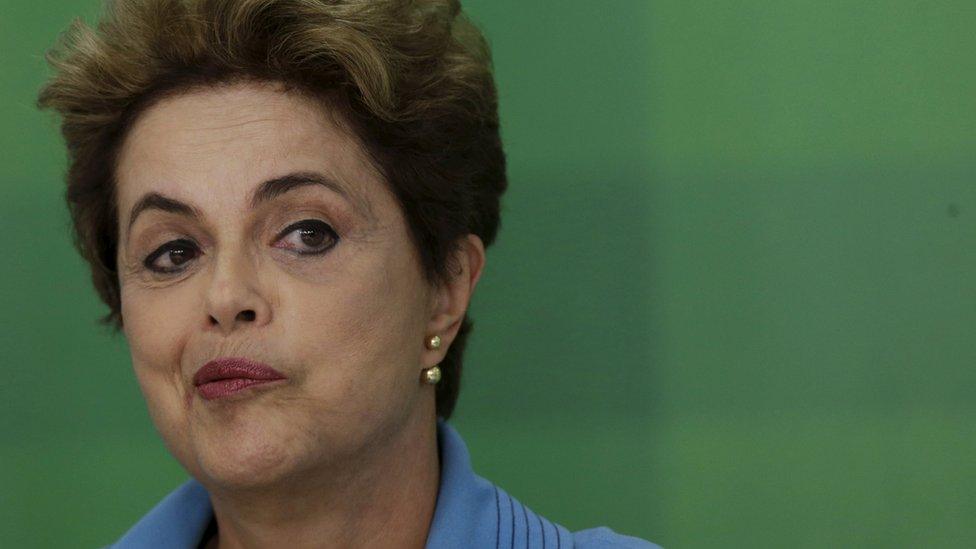
President Rousseff reacts to lower house vote, saying she is "outraged". She vows to fight "the injustice" and says she will not bow to pressure.

6 May: Lower house Speaker suspended
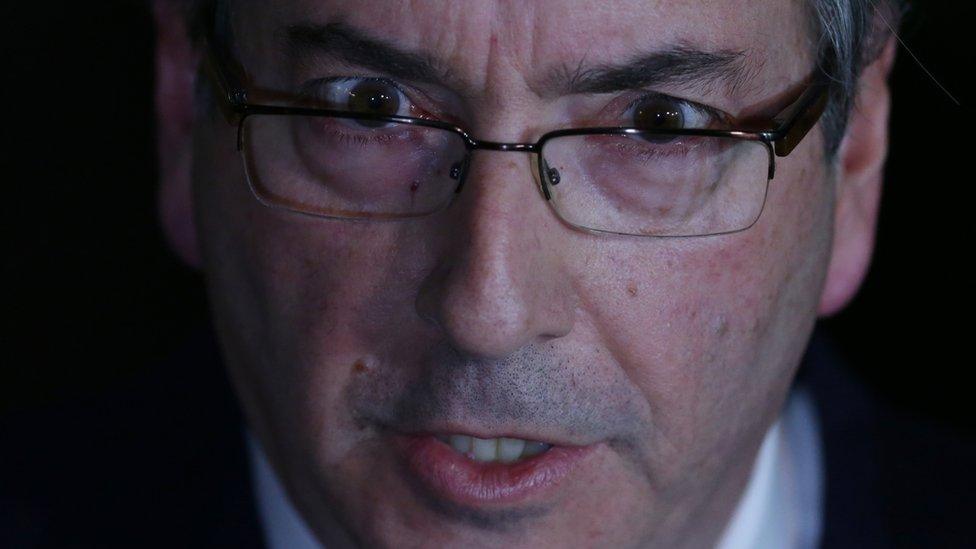
The Supreme Court suspends Eduardo Cunha from his mandate, following a request by the country's attorney general, over accusations that he tried to obstruct a corruption investigation against him and that he intimidated lawmakers. Mr Cunha, who is charged of corruption and money laundering in relation to the Petrobras scandal, says the decision is "political" and that he will appeal. Deputy Speaker Walter Maranhao takes over as acting Speaker.

9 May: Chaos as acting Speaker annuls impeachment vote
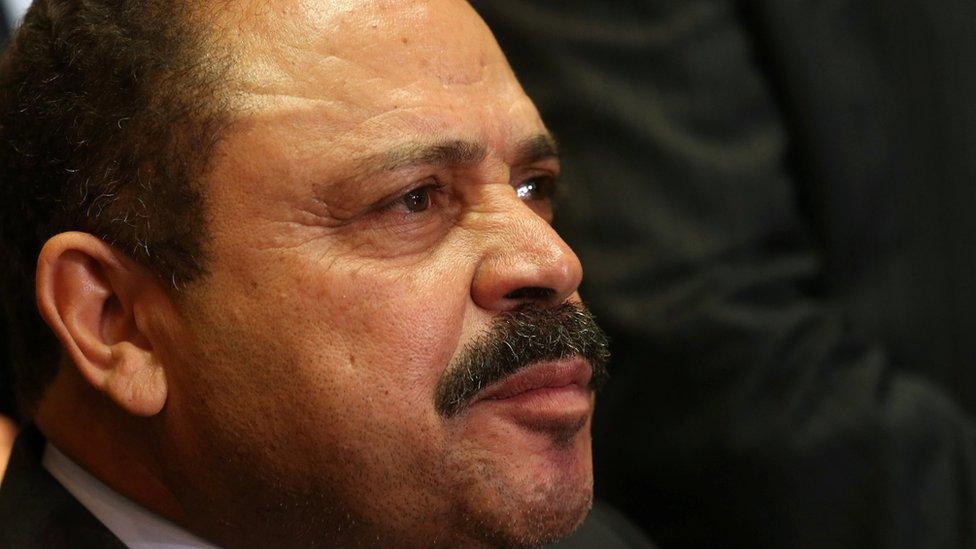
In a surprise move, Mr Maranhao annuls the 17 April vote, citing irregularities, and asks for a new vote. The decision casts doubts over the impeachment process. The Senate Speaker, Renan Calheiros, says the decision is illegal and that the Senate vote will happen as planned. Hours later, Mr Maranhao announces he is revoking his decision.

10 May: Rousseff's last-ditch Supreme Court appeal
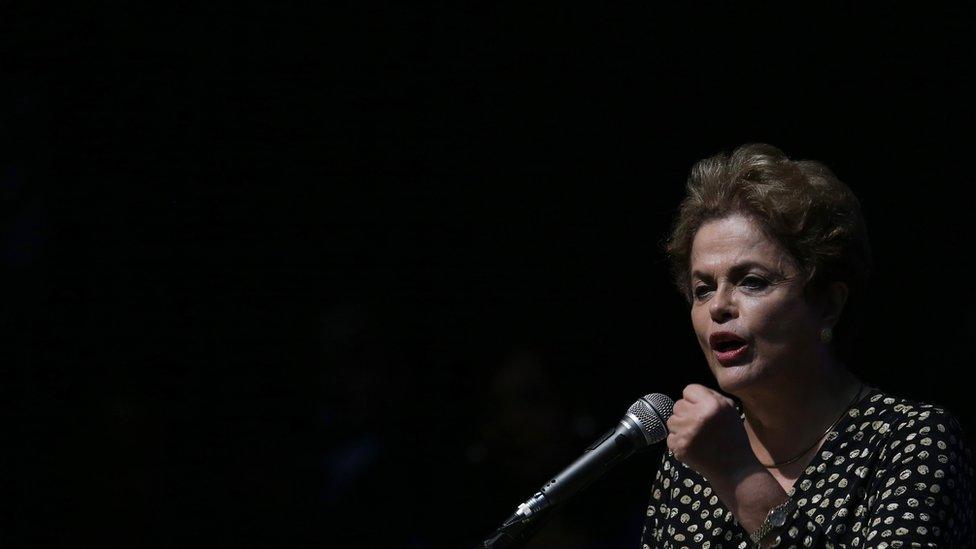
In a last-ditch effort to stop the Senate vote, Brazil's attorney general asks the Supreme Court to annul the impeachment proceedings, arguing that they are politically motivated. In her last public event before the expected Senate session, she repeats that the impeachment attempt is a "coup" and that she will "resist". Supporters of the president hold demonstrations in many Brazilian cities.

11 May: Crucial Senate vote
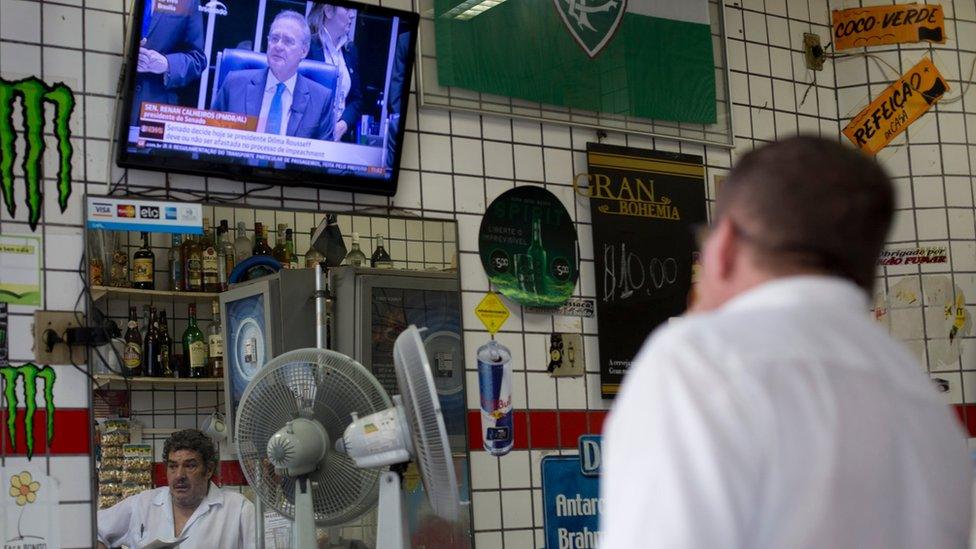
Mr Calheiros says the impeachment vote will happen as expected. A Supreme Court judge later rejects Ms Rousseff's appeal. Senators start a marathon session that goes through the night in which they approve the start of an impeachment trial. Ms Rousseff is automatically suspended from the presidency for up to 180 days, while the trial lasts. Mr Temer takes over as interim president.
- Published8 April 2018
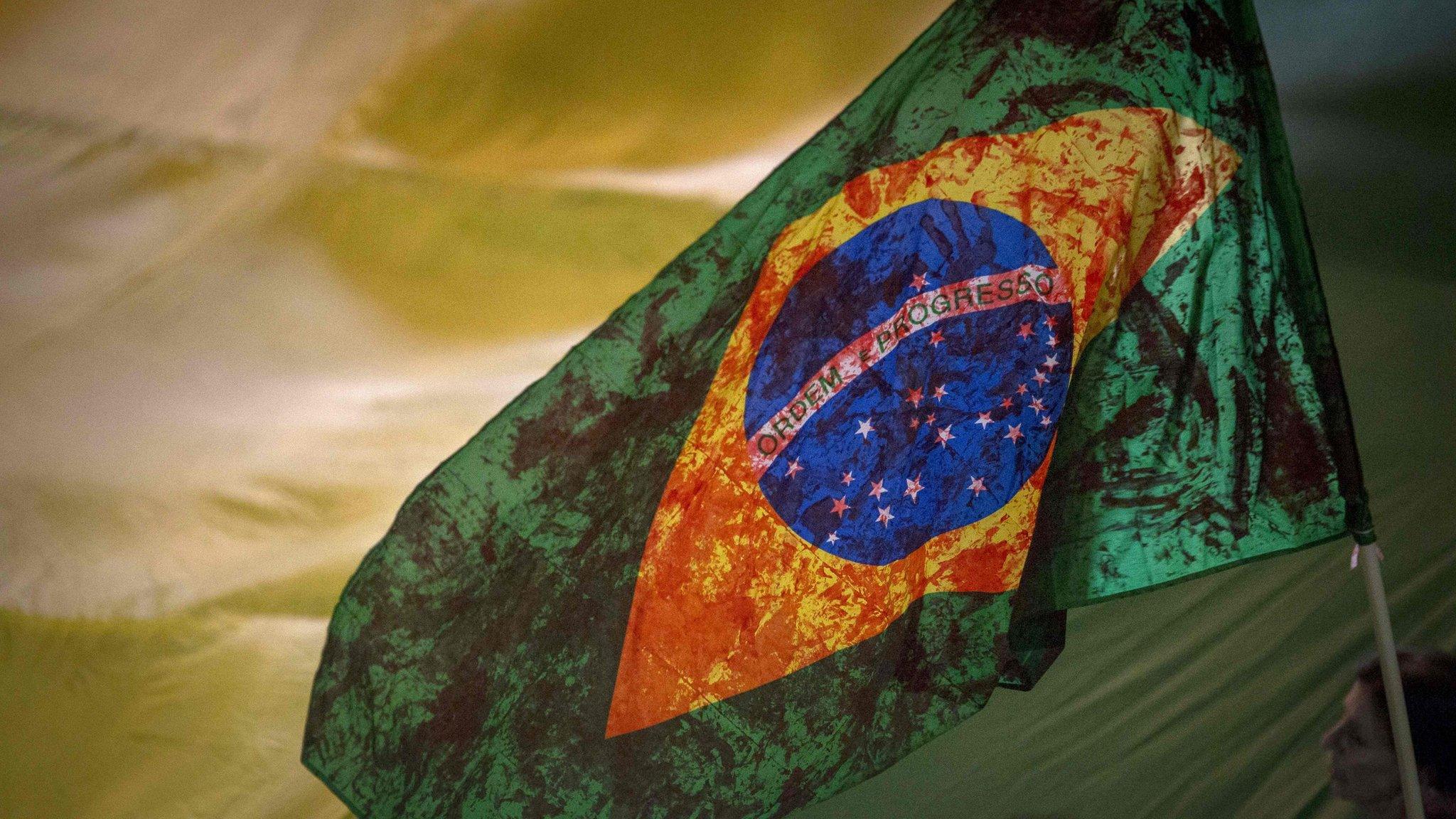
- Published12 May 2016
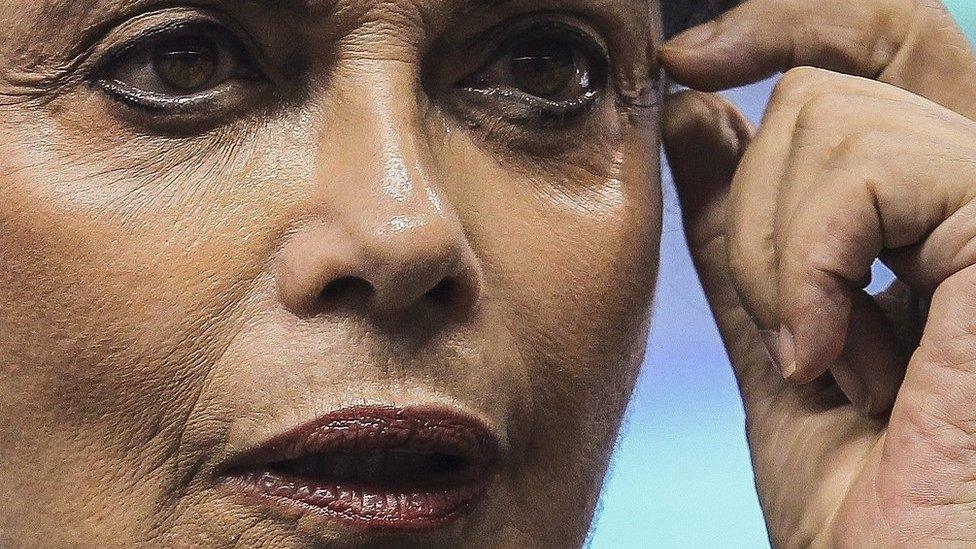
- Published18 April 2016
